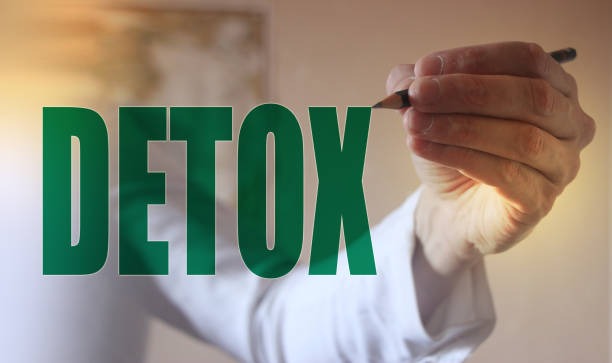Opiate detox is the first and most crucial step in the path to addiction freedom. It marks the initial step towards healing—detoxifying the body and bracing the mind for recovery. With such an epidemic rise of Opioid Use Disorder (OUD), more and more people are seeking detox programs that are aimed towards safety, dignity, and sustainable results.
We will focus on everything from managing expectations during withdrawal to effective treatments that facilitate the process.
Understanding Opiate Addiction
Heroin, oxycodone, and hydrocodone are all examples of opiates; both prescription and illegal. They are extremely potent with an intense euphoric and pain-relieving effect. In a medical context, they are beneficial, however, the rampant abuse harms and leads to suffering from physical dependence alongside psychological addiction.
The Trouble with Long-Term Opiate Addiction
- Physical dependence: Users become conditioned with the substance and face withdrawal symptoms in its absence.
- Increased tolerance: A higher dosage is required to experience any effect due to prior consumption.
- Addiction: Uncontrollable usage that persists regardless of harmful effects.
Recent estimates from the CDC state that over 75% of drug overdose deaths in the United States involve an opioids in some form. This data paints a picture of the negligibly addressed workplace of Detox Services for opioids.
What is Opiate Detox
Opiate Detox is the process of clearing opioids from a person’s body. This might not remove the person’s addiction, however, it does provide relief from being dependent on allowing the person to effectively treat addictions.
Goals of Detox:
- Elevate health risks associated with extreme physical and emotional stress.
- Withdraw dependencies while maintaining high comfort levels.
- Enable seamless transition to inpatient or outpatient rehabilitation procedures.
Symptoms of Opiate Withdrawal
In general, withdrawal symptoms begin to appear about 12 hours after the last dose is consumed. The severity and duration of withdrawals depend on the type of opiate used, the frequency and extent of use, and the individual’s physical condition.
Prevalent Symptoms:
- Lack of sleep (insomnia) and muscle
- Exceeding fevers in normal body temperature (hyperthermia)
- Stomach upset (nausea and vomiting)
- Mental Blankness (depression, anxiety)
Professional detox services become paramount when readdressed. Without this layer of service, many are often medically at risk.
Opium Withdrawal Timeline
Knowing the opiate detox timeline helps you get ready both mentally and physically.
Risk is Greater When Detoxing Alone
Additional Symptoms such as extreme withdrawal symptoms or dehydration can result in relapse without proper supervision. Mental health disorders and cardiovascular strain are some other risks that an individual could face without support.
Advantages of Medically Supervised Detox
- Always available help: 24/7 monitoring for safety and well-being
- Decreased withdrawal: Medication-assisted treatment (MAT)
- Proper intake: Hydration, appropriate diet, and emotional support
- Easy flow: Ongoing treatment and therapy transitions are performed seamlessly
Facilities like Opus Treatment offer individuals a confidence-inspiring and caregiver-guided detox structure.
Holistic Support During Detox
Medical care is one component of a larger strategy. Opiate detox programs that include holistic strategies often have better results.
Support Services May Include:
- Advanced emotional regulation therapy for trauma processing and management
- Restorative nutrition to enhance the patient’s physical health
- Guided mindfulness sessions such as meditation and breathwork
- Peer assistance networks
Using this method allows for a safer detox process, but most importantly a healing and empowering process.
Moving Into Intensive Follow-Up Care
Achieving a long-term recovery is difficult and requires more than just detox. Healing work starts with comprehensive care that tackles the psychological and behavioral aspects of addiction. For individuals seeking a private, comfortable, and personalized recovery journey, luxury drug rehab programs can offer an ideal setting with top-tier care and amenities.
Typical Procedures Following Detox:
Inpatient Treatment: Residential treatment centers provide serious intervention for the patients with moderate to severe conditions with adequate supervision.
Partial Hospitalization Programs (PHP): Patients receive care and remain in the facility during the day and go home at night.
Intensive Outpatient Programs (IOP): Treatment is a bit flexible and takes place in the form of therapy supplemented services and care.
Sober living homes: Provides safe space for individuals to continue to heal in accountability.
Detox facilities usually help develop some sort of treatment plans as well as referrals to ensure continuity of care.
Factors to Help You Choose an Opiate Detox Center
Finding the right program can be the difference between success and failure. Keep these important points in mind when considering a facility:
Key Factors:
- Accreditation and licensing that meets high standards of care provider.
- Sufficient Staffing with an addiction medicine physician who has extensive experience.
- Developed Treatment Schedule created for the individual patient.
- Healing-Friendly environment that is comfortable and safe.
- Support for Recovery is provided long-term.
As an example, Opus Treatment has a leading-edge opiate detox program. They combine medical excellence with compassionate care in a comfortable setting.
Shift the Debate
Many people put off detox treatment due to fear, shame, or a misunderstood stigma. The focus needs to change; addiction isn’t a moral failing—rather, it is a disease that needs treatment, and detox is a courageous first step on the road to recovery.
Keep in Mind:
- There is a support system available.
- Appropriate help can be given.
- Recovery is achievable.
Ending Remarks
The process of opiate detox is difficult, but hard doesn’t mean impossible. This kind of treatment, with the appropriate resources, can offer freedom from addiction.
Take that step and get help. If there is someone you know with an opioid addiction, contact a professional detoxing program like Opus Health or Opus Treatment to assist in the path to detox.
Opioid Detox FAQs
Opiate Detox: Duration
The acute stage of withdrawal typically lasts 5-10 days. Keep in mind some symptoms such as anxiety or cravings may persist. With the right professional aid, the process becomes much more seamless.
Opiate Detox: Danger Evaluation
Without proper medical attention, opioid detox becomes pointless as it can easily lead to dehydration, mental health decline, relapse, or in some more severe cases life-threatening withdrawal symptoms.
Opiate Detox: At Home
While it can be done, home detox isn’t the optimal selection as it poses a greater risk of relapse. Medical detox on the other hand becomes a much safer and more effective option.
Will I be given medications during detox?
Professional supervision may include symptom control with buprenorphine, clonidine, or methadone to manage cravings.
What happens after detox?
You’ll receive specialized pathways to care such as residential care, outpatient programs, therapy, as well as aftercare support to promote long-term recovery.





Leave a Reply